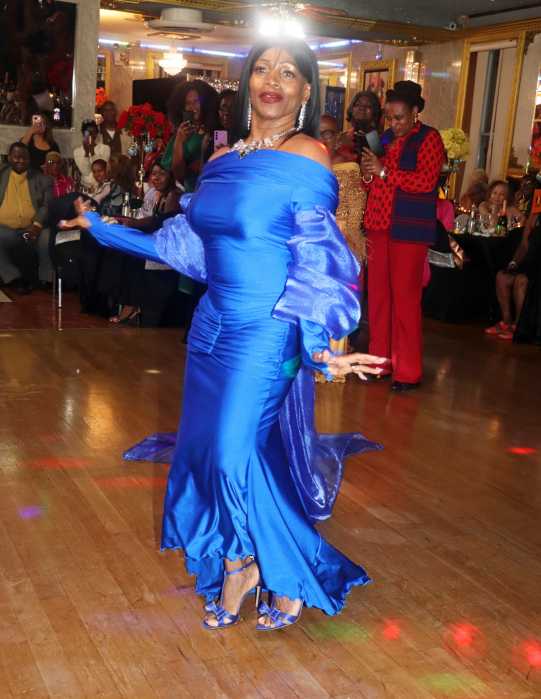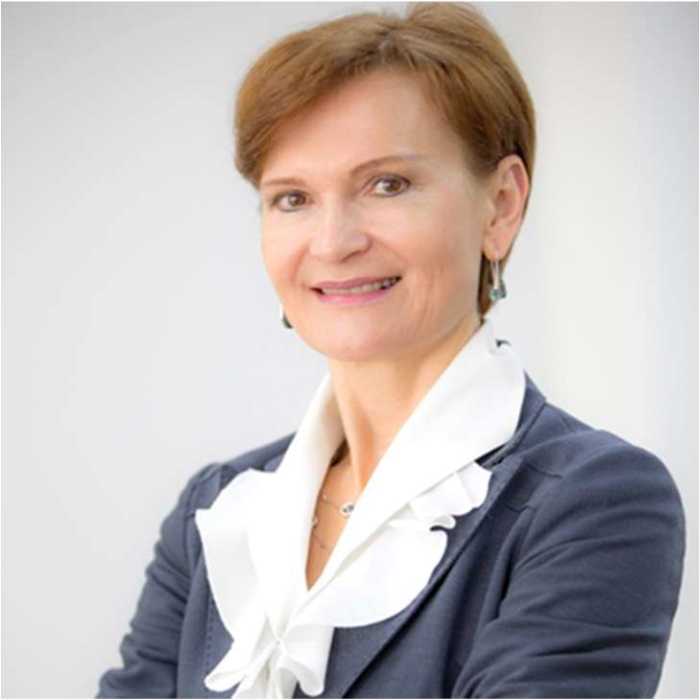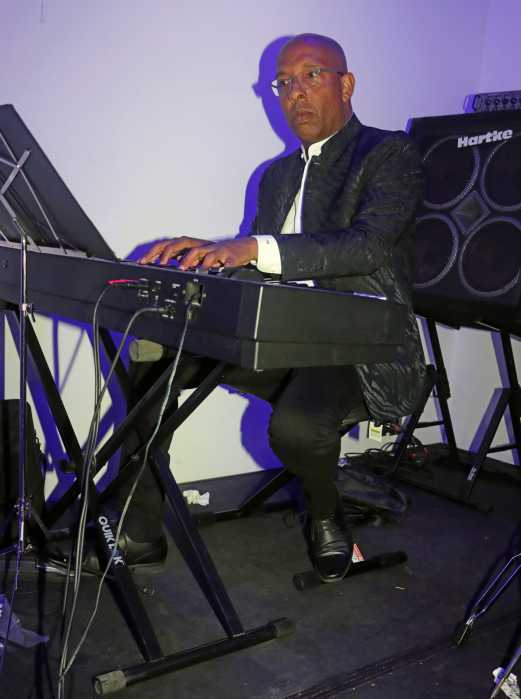A leading human rights group in the United States has urged the Canadian Parliament on vote no on a bill that would require mandatory detention for some migrants, including Vincentian and other Caribbean immigrants.
Human Rights Watch said the measure would violate Canada’s binding international legal obligations.
In a letter to Canadian Members of Parliament, Human Rights Watch said that Bill C-31, “Protecting Canada’s Immigration System Act”, would violate human rights law by allowing for a year of detention without review for certain groups of people, including 16- and 17-year-old children.
“Instead of identifying and punishing human smugglers, this bill would punish their victims,” said Bill Frelick, Refugee Program director at Human Rights Watch. “Canada should go after people who profit from human smuggling, not people fleeing persecution.”
Frelick said Bill C-31 would require one-year, mandatory detention for people in certain categories who arrive irregularly.
It would also prevent those people, including some recognized as refugees, from achieving permanent resident status for five years, he said, adding that both provisions would contravene Canada’s obligations under Article 31 of the Refugee Convention, which prohibits imposing penalties on refugees on account of their illegal entry or presence.
The five-year ban on applying for permanent resident status would also result in significant delays to family reunification, Human Rights Watch said.
It said the mandatory, unreviewable detention provisions of C-31, which also apply to 16- and 17-year old children, violate the Convention on the Rights of the Child, which defines children as people under age 18 and prohibits their arbitrary detention.
“Subjecting 16- and 17-year-old children to mandatory, unreviewable detention backtracks on Canada’s commitments to children,” Frelick said.
“Even though the government is now proposing to eliminate mandatory detention for children under 16, if their parents are detained, the children will either be detained with their parents or separated from them for a year,” he added. “Either way, the situation would have damaging effects on a child.”
Frelick said Bill C-31 would also give the citizenship, immigration, and multiculturalism minister exclusive authority to designate certain countries as “safe,” meaning they are presumed to be free from persecution and not to produce refugees.
He said refugee claimants from the Designated Countries of Origin list would have expedited hearings, would not have access to the new Refugee Appeal Division, and their applications for leave before the Federal Court would not automatically suspend their removal.
In practice, Frelick said this means that by the time the court might reverse a denial of asylum, the refugee would already have been subjected to persecution back home.
In introducing Bill C-31, he said the citizenship, immigration, and multiculturalism minister specifically cited refugee claimants from the European Union as people who should presumptively be regarded as coming from “safe” countries.
But he said Human Rights Watch has documented “racist and xenophobic violence directed particularly against Roma and migrants – and inadequate police protection – in a number of EU member states, including Italy, Greece, and Hungary.
“We believe it is impossible to make a blanket determination that any country is safe for everyone and would never produce a refugee,” Frelick said.
“Where there are laws authorizing ‘safe country’ lists, we don’t think the decision to identify those countries, which could have terrible consequences if they turn out to be wrong, should be left in one person’s hands,” he said.
Claiming last month that its immigration system is broken and is being taken advantage of by “bogus” refugee claimants from “democratic, human rights-respecting countries,” such as St. Vincent and the Grenadines, Canada’s Immigration Minister Jason Kenney announced a major overhaul of the system.
Kenney outlined legislation that he was tabling in the House of Commons that would allow countries to be labeled as “safe” or “unsafe.”
“Refugee claimants from legitimate refugee countries will be put on a different track than those from countries, which are considered to have solid human rights records,” he said.
“We’re sending a message today: If you do not need Canada’s protection, we will give you access to our fair asylum system and then send you home quickly,” he added.
“You will not be able to remain in Canada for years, using endless appeals at the expense of Canadian taxpayers,” he continued.
Kenny said it currently takes about 1,000 days for Canada’s Immigration and Refugee Board (IRB) to review a claim filed by someone from a “democratic rights-respecting country.”
But, under the proposed legislation, the time would be reduced to 45 days.
Kenny said those who file refugee claims from “unsafe” countries, and legitimately require protection, will have their claims heard faster.
He said they will also be granted access to an appeal system not available to those from “safe” countries.
In recent years, Kenney said Canada has seen a dramatic increase in the number of refugee claims filed from countries within the European Union (EU), among other countries.
He said 23 percent of refugee claim submissions last year were filed from the EU, an increase of 14 percent over the previous year.
Additionally, he said more refugee claims were filed from the EU in 2011 than from Africa and Asia, with virtually all of them either rejected by the IRB or abandoned by the claimant.
The immigration minister said nationals from countries that normally don’t produce refugees will have fewer options to delay their removal from Canada.
He said the process can now take up to four-and-a-half years, if all appeal avenues are used.
In addition, he said access to taxpayer-funded social benefits and work permits will be limited for applicants from these so-called “safe” countries.
Kenny said work permits and benefits will only be available after 180 days, adding that most claimants from “safe” countries “will not be here that long.”
He, nonetheless, stressed that the overall goal is bringing in “legitimate refugees who truly need Canada’s help,” not reducing the number of refugees coming to Canada, noting that Canada welcomes more refugees per capita than any other country.
“For too many years, our generous asylum system has been abused by too many people making bogus refugee claims,” Kenney said.
“Canadians take great pride in the generosity and compassion of our immigration and refugee programs, but they have no tolerance for those who abuse our generosity or take advantage of our country,” he added.
Kenny’s latest announcement comes amid what has been described as heightened fraudulent claims for asylum in Canada by Vincentians and other Caribbean nationals.
In an exposé late last year, the Toronto Star, under the caption, “SVG – Is this Caribbean Idyll the Worst Place in the World to be a Woman,” said that the majority of Vincentians flocking to Canada, seeking refugee status, are women, who, it appears, are “fleeing domestic violence.”
The Star said that, in 2010, 710 Vincentians sought asylum in Canada, up from only 179 in 2001, and that, over the past decade, it adds up to more than 4,500 refugee claimants — “or 4.3 percent of the tiny Caribbean archipelago’s population.
“There is something very wrong in the relationship between men and women in St. Vincent and the Grenadines,” the Star quoted Canadian Federal Court Justice Sean Harrington in a 2009 ruling.
“Year after year, woman after woman washes up on our shores seeking protection from abusive, violent husbands or boyfriends,” he added.
But, it said, of those who have recently sought asylum in Canada, only one in three have been successful.
“There are no political, religious or social conditions in St. Vincent that justify any Vincentian applying for refugee status,” St. Vincent and the Grenadines’ Consul General to Toronto, Steve Phillips, contending that shady immigration consultants have “duped” many Vincentians into making refugee claims.
“The fact that Vincentians are making refugee claims (is) alarming and disgusting for us as a nation,” he added, stating that those claiming domestic violence are running from financial difficulty, not fists.
Prime Minister Dr. Ralph Gonsalves, who is also Minister of Legal Affairs, had cautioned that increasing claims for asylum in Canada could result in that country revisiting its immigration policy with Kingstown.
“What will change is that if Vincentians continue to make these false claims, the whole country will suffer, because Canada will require visas, which they don’t require at the moment,” he told local radio listeners.
The prime minister said there is “adequate state protection of persons who are subjected to domestic violence”, adding that some nationals “manufacture the evidence about abuse.”


























